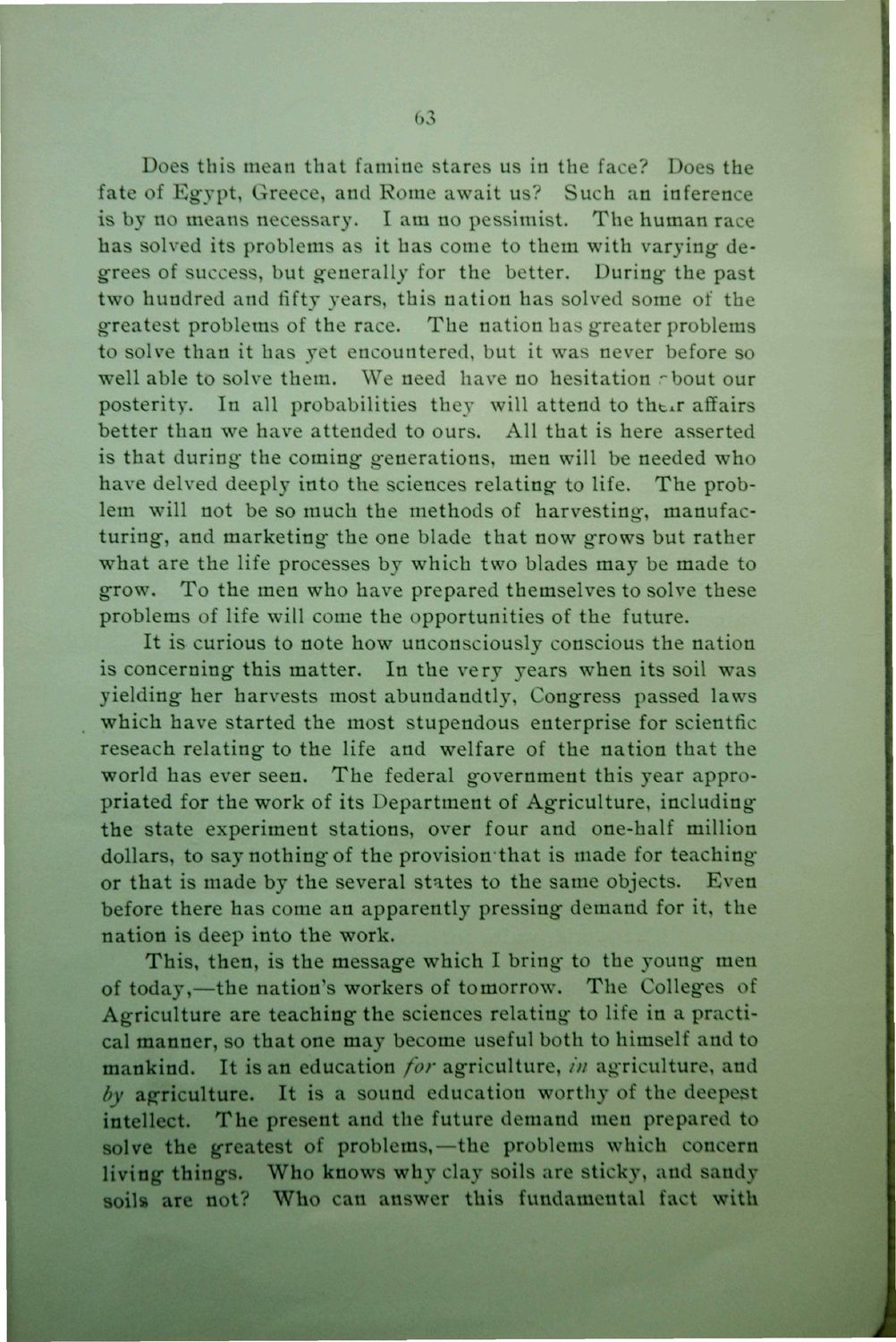| |
| |
Caption: Dedication - Ag Building
This is a reduced-resolution page image for fast online browsing.

EXTRACTED TEXT FROM PAGE:
63 Does this mean that famine stares us in the face? Does the fate of Egypt, Greece, and Rome await us? Such an inference is by no means necessary. I am no pessimist. The human race has solved its problems as it has come to them with varying* degrees of success, but generally for the better. During the past two hundred and fifty years, this nation has solved some of the greatest problems of the race. The nation has greater problems to solve than it has yet encountered, but it was never before so well able to solve them. We need have no hesitation rbout our posterity. In all probabilities they will attend to tht*r affairs better than we have attended to ours* All that is here asserted is that during the coming generations, men will be needed who have delved deeply into the sciences relating to life. The problem will not be so much the methods of harvesting* manufacturing, and marketing the one blade that now grows but rather what are the life processes by which two blades may be made to grow. To the men who have prepared themselves to solve these problems of life will come the opportunities of the future. It is curious to note how unconsciously conscious the nation is concerning this matter. In the very years when its soil was yielding her harvests most abundandtly, Congress passed laws which have started the most stupendous enterprise for scientfic reseach relating to the life and welfare of the nation that the world has ever seen. The federal government this year appropriated for the work of its Department of Agriculture, including the state experiment stations, over four and one-half million dollars, to say nothing of the provisionthat is made for teaching or that is made by the several states to the same objects. Even before there has come an apparently pressing demand for it, the nation is deep into the work. This, then, is the message which I bring to the young men of today,—the nation's workers of tomorrow. The Colleges of Agriculture are teaching the sciences relating to life in a practical manner, so that one may become useful both to himself and to mankind. It is an education for agriculture, in agriculture, and by agriculture. It is a sound education worthy of the deepest intellect. T h e present and the future demand men prepared to solve the greatest of problems,—the problems which concern living things. Who knows why clay soils are sticky, and sandy soils are not? Who can answer this fundamental fact with
| |